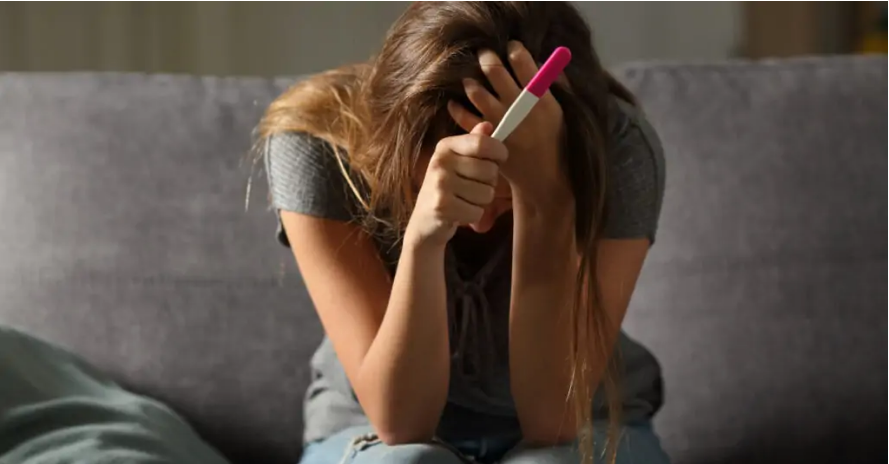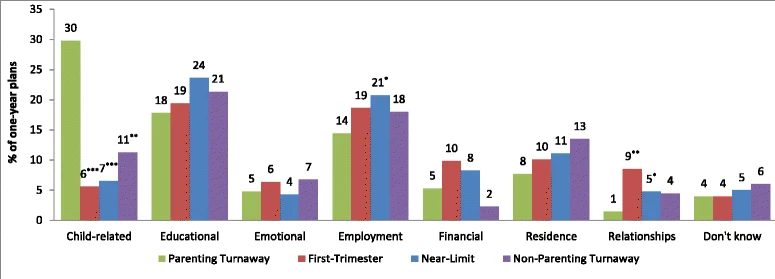Introduction
Pre-term fetuses are removed from the uterus during an abortion, which results in or directly contributes to their death. Miscarriage can be caused by both naturally occurring substances and medical techniques. According to (Rocca et al. (1a)) abortion is a procedure that can be performed at any point during a pregnancy. Most people don’t give it much thought because it’s a contentious issue. Abortion differs from most political issues because it affects women rather than men. Recently, due to the media’s focus on young women for the past forty-five years, there has been a shift in the popular perception of abortion and the harm it causes women (Hunt et al.). Abortion has become more widely available in the United States, contributing to an increase in physical and mental health issues and the current feminism wave (Rocca et al. (1b)). An induced abortion or miscarriage occurs when a fetus portrays non-viability before the twentieth week of pregnancy. Nevertheless, irrespective of the scenario that results in abortion, victims experience adverse effects. Substantial knowledge gaps about abortion remain in the contempt society and significantly affect the human resource, especially contemporary society to reduce the psychological and emotional issues among our women.
Dimensions of Abortion
All of a sudden, unwanted pregnancies can be terminated naturally or surgically. Natural causes of miscarriage include genetic abnormalities, chronic diseases that overlap with pregnancy, and environmental factors (Harris et al.) Abortions that have been induced are those that have been induced. There are two types of induced abortions: therapeutic and elective. Most experts believe that abortifacients -agents that terminate pregnancies prematurely have been around for more than 4500 years (Smakosz et al.). Surprisingly, abortion was legal in ancient Greece to end an unwanted pregnancy or control population growth (Burris et al.). Abortion laws and regulations have been influenced by various factors, including religious, social, and political considerations.
Health Effects of Abortion
When a woman has an abortion, her physical health may suffer in many cases. It is illegal to bring a minor into an abortion clinic. The woman is only given a few details about the procedure that will terminate her pregnancy. As a result, the woman must be informed about the risks of abortion and how it may affect future pregnancies and the mother’s death. Abortions have such negative consequences because they are out of character for a woman. A woman’s body begins to prepare for the arrival of her first child at puberty. A fetus will be present in the womb every month when the woman is healthy.
Since puberty, the body has been preparing for this moment by using all of the nutrients contained within to build and protect an embryo. Damage to the uterus, intestines, bladder, or cervix, as well as excessive bleeding and other major problems requiring additional surgery, are all possible side effects of this abortion method. Complications may also make it difficult for a woman to conceive in the future, one of the baby’s side effects is death. One has the right to know about the risks associated with all abortion procedures. withdrawal of consent is accepted any time before the act is done or when the act poses a serious threat.
Abortion endangers a mother’s health, but it is also a leading cause of maternal mortality and life-threatening complications like bleeding, fever, infection, and mental illnesses like regret, guilt, smoking, drinking, self-destructive behavior, and even suicide. In many cases, unintended pregnancies are frequently caused by a woman’s inability to use reliable contraception or both (Korengkeng et al. pp.23). Good family planning aims to reduce the number of unintended pregnancies, and studies show that countries with well-developed sex education and contraception systems have lower abortion rates. People who have had abortions may suffer long-term physical, social, and psychological consequences resulting from the miscarriage, whether natural or the result of a criminal act.
Analysis of Emotional, Psychological, and Social-Economic Effects of Abortion
The adverse effects of abortion on a person’s socioeconomic, emotional, and psychological well-being are numerous. Long-term consequences for women who seek abortion care, regardless of whether or not it is legal, are likely to be unrelated to their demographic or socioeconomic status (Miller et al.). Genetics, unplanned or planned pregnancies, social norms, and family structure are among the many influences on the psychological effects of abortion.
A comprehensive definition of abortion is formed by variables in one’s biology, psychology, and social environment. Even though abortion has been practiced for decades worldwide, there are still debates about its legality and consequences. Abortion is illegal and strictly prohibited in Iran, so there are no reliable statistics on its prevalence. In pre-Islamic Iran, 4209 pregnancies out of 16,707 pregnancies reported by 4209 mothers resulted in only 243 stillborn babies and 1834 abortions (Jalali et al). An anthropological study found that women in a significant Tehran district frequently have abortions, regardless of religious beliefs or goals. The seminar proceedings on “Comprehensive Analysis of All Aspects of Abortion in Iran,” published in Kermanshah in 2002, contain vital information on abortions (Pourreza et al.). Only in the last three decades has Iran thoroughly investigated the physiological consequences of abortion.
Contrary to popular belief, most abortionists have no idea what they are getting themselves into in the long run. Those who are unfamiliar with abortion might think of it as a medical procedure like any other. Terminating a healthy pregnancy is harmful to both the mother’s physical and mental health. This transition is unlike anything one has heard about from organizations or propaganda for the first time in one’s life. Young women who become pregnant for family, educational, or financial reasons are frequently pressured to have abortions. Despite being singled out by a political message, these young women are not given a complete explanation of what an abortion entails. Abortion procedures and practices are less likely to be used by those well-informed about them.
Both abortion supporters and opponents argue that the procedure has positive and negative psychological and emotional effects. According to pro-abortion advocates, most people’s emotional reactions to legal abortion are positive. These studies show that mental health problems associated with abortion are rarer and less common than those associated with childbirth. Abortion is a relatively benign procedure in terms of the emotional impact on the patient, except in cases of pre-abortion emotional difficulties and when a desired pregnancy is terminated.
Surprisingly, a woman’s proclivity to have an abortion decreases with age. Pro-choice propaganda, including this study, has strongly influenced young women. This type of behavior is supported by modern feminists (Brandi et al. pp.323). Majorly, since abortion is only performed on women, feminists believe the opposing side is sexist or patriarchal. Abortion preys on young women who believe feminism will protect them. When they fail to take both the medical and ethical aspects of abortion into account.
Impacts on Mental Health
Aside from the stress and anxiety of pregnancy, many women find abortions to be an effective way of dealing with the first trimester. Pro-life advocates, on the other hand, emphasize the procedure’s negative impact on women’s mental health and emotional well-being (Reardon). Women who have had abortions may experience various mental health issues, including smoking and drug abuse, nightmares, depression, suicide attempts, eating disorders, and guilt (Appendix A).
Women’s mental health and the long-term nature of their psychological issues must be prioritized. The anti-abortion community frequently overlooks the psychological consequences of abortion. The scarcity of relevant data and literature was exacerbated by limited access to available resources and cultural stigmas associated with diseases such as mental illness and abortion (Patev et al.) If people do not pay more attention to how psychological side effects affect them, their relationships with their families and communities will suffer (see graph 1).
Conclusion
Even though abortion has been found in every known culture, it remains a divisive issue. Natural or surgical methods are available for ending unwanted pregnancies. Miscarriage can be caused by genetic defects, chronic illnesses that overlap with pregnancy, and environmental factors. Therapeutic and elective induced abortions are the two main varieties. The mother’s physical and mental health suffers when she chooses to terminate a healthy pregnancy. Abortion is a popular option for many women in the first trimester. Those who support life believe that abortion is harmful to women’s mental health, so they oppose it.
Works Cited
Brandi, Kristyn, et al. “An Exploration of Perceived Contraceptive Coercion at the Time of the Abortion.” Contraception 97.4. 2018: pp.329-334.
Burris, Scott, et al. “Identifying Data for the Empirical Assessment of Law (IDEAL): A Realist Approach to Research Gaps on the Health Effects of Abortion Law.” BMJ Global Health 6.6. 2021: e005120.
Harris, Sean M., et al. “Identification of environmental chemicals targeting miscarriage genes and pathways using the comparative toxicogenomics database.” Environmental research 184. 2020: 109259.
Hunt, Lauren K., et al. “Examining Public Sentiment Surrounding Abortion: A Qualitative Analysis of# YouKnowMe.” Women’s Reproductive Health. 2022.
Jalali, R et al. Prevalence of Unwanted Pregnancy in Iranian Women: A Systematic Review and Meta-analysis. Reprod Health 16, 133 (2019).
Korengkeng et al.”Comparison of Health Education Technique on the Abortion Knowledge Levels in Students of UNKLAB Airmadidi High School.” 8ISC Abstract Proceedings. 2022: pp.19-19.
Miller et al., The Economic Consequences of Being Denied an Abortion. No. w26662. National Bureau of Economic Research, 2020.
Patev, Alison J, et al., “The Interacting Roles of Abortion Stigma and Gender on Attitudes Toward Abortion Legality.” Personality and Individual Differences 146. 2019: pp. 87-92.
Pourreza et al. “Psychological consequences of abortion among the post abortion care seeking women in Tehran.” Iranian journal of psychiatry 6.1 (2011): 31.
Reardon, David C. “The Abortion and Mental Health Controversy: A Comprehensive Literature Review of Common Ground Agreements, Disagreements, Actionable Recommendations, and Research Opportunities.” SAGE Open Medicine 6. 2018: 2050312118807624.
Rocca, Corinne H., et al. (1a).”Emotions and Decision Rightness Over Five Years Following an Abortion: An examination of Decision Difficulty and Abortion Stigma.” Social science & Medicine 248. 2020: 112704.
Rocca, Corinne H., et al. (1b). “Emotions over Five Years After Denial of Abortion in the United States: Contextualizing the Effects of Abortion Denial on Women’s Health and Lives.” Social Science & Medicine 269. 2021: 113567.
Smakosz et al. “Ars Pharmaceutica: From Alchemy to Telepharmacy.” 2021.
Appendix A


